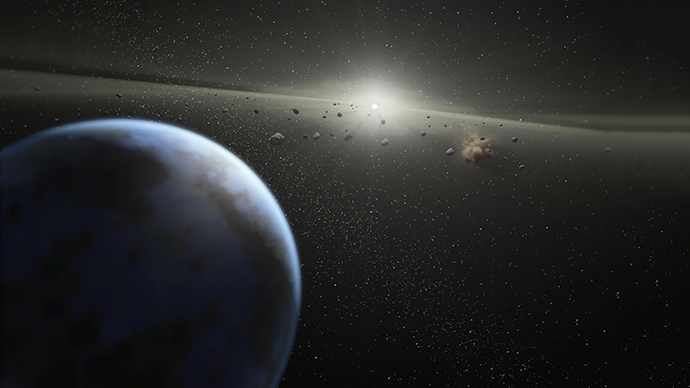New research has suggested that water was flowing across the surface of Mars some 200,000 years ago. The nature of rock formations in a Mars crater suggests the sediment deposits and channels it contained were formed by ‘recent’ flowing water.
Swedish scientists from the Department of Earth Sciences at the
University of Gothenburg identified “Very young …and
well-preserved deposits of water bearing debris flows in a
mid-latitude crater on Mars,” according to the study
published in the journal Icarus.
It was previously estimated that liquid water flowed across the
Red Planet during its last ‘ice-age’, some 400,000 years ago.
However, the young age of the crater means the features
signifying water must have appeared since.
The scientists drew comparisons between the geomorphological land
formations and the Norwegian archipelago of Svalbard. The crater
had features of areas on earth where debris flow had caused
material to be deposited by fast-flowing water.
“Our fieldwork on Svalbard confirmed our interpretation of
the Martian deposits,” stated Andreas Johnsson, a
spokesperson for the research team.
“Our study crater on Mars is far too young to have been
influenced by the conditions that were prevalent then. This
suggests that the meltwater-related processes that formed these
deposits have been exceptionally effective also in more recent
times,” said Johnsson.
“If we find on Mars evidence for a second genesis, that
changes everything,” Johnsson added.
A debris flow takes place when liquid water soaks through debris
lying on an incline to the point that it becomes saturated and
heavy, causing it to descend down the incline.
On earth, debris flow can result in material destruction and
sometimes casualties, depending upon their severity.
When the flow stops, new landforms are made, including lobate
deposits and paired levees. It is these that Johnsson has
identified on the planet.
“Gullies are common on Mars, but the ones which have been
studied previously are older, and the sediments where they have
formed are associated with the most recent ice age. Our study
crater on Mars is far too young to have been influenced by the
conditions that were prevalent then,” Johnson said.


